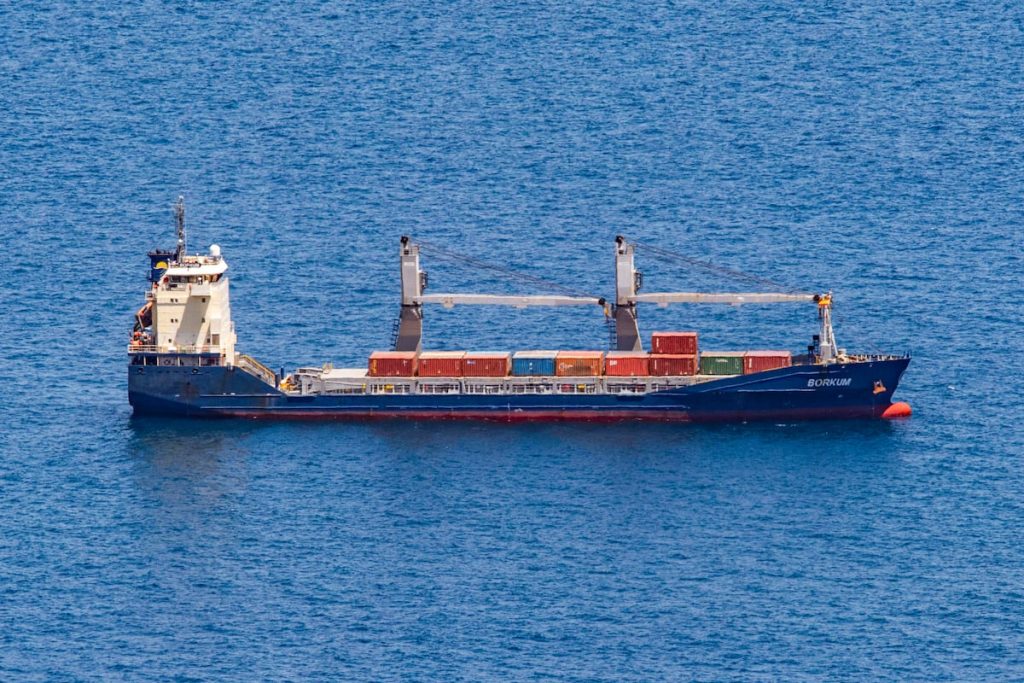The Spanish government has denied permission for a ship loaded with explosives from India and bound for Israel to make a stop in Spain amid controversy with regards to a stop in Cartagena of another ship, the Borkum, which is accused by pro-Palestinian associations of transporting military material for the Israeli army. However, the government claims that the Borkum is actually carrying a cargo for the Czech Ministry of Defense. The ship that was denied the stop is the Marianne Danica, a Danish-flagged vessel that departed from Madras, India, heading to the port of Haifa, Israel. This is the first time that the government has denied authorization for a ship carrying weapons to make a stop in Spain.
The Marianne Danica, like the Borkum, requested two permits to transit through Spanish waters and make a stop in the port of Cartagena, but the request was for the following Tuesday, May 21. The ship, carrying explosive material, has a cargo of 26.8 tons. The sender of the goods is the Indian company Siddharta Logistics Co and the recipient is Israel Cargo Logistics (ICL). There is speculation that the denunciations against the Borkum may have confused one ship with another. Sumar, a minority partner in the government, has filed a complaint with the Attorney General’s Office requesting the seizure of the Borkum and specifically the “military material destined for Israel that is in its holds or deck”.
The Socialist part of the government has refuted claims that the weapons on board the Borkum are destined for Israel, but Sumar presents information and documentation claiming otherwise. Podemos has also mobilized against the docking of the ship, with a complaint filed in the National Court. The Prosecutor’s Office has responded against admitting the complaint, citing lack of reliable documentation on alleged criminal activities. The controversy surrounding these ships and their cargo has sparked political and legal actions, with demands for transparency and compliance with international law.
Despite the government’s assertion that the weapons on the Borkum are headed to the Czech Republic, concerns persist about the ultimate destination of the cargo. Podemos has been vocal in its opposition to arms sales to Israel, citing the ongoing conflict in Gaza. The intervention of political parties and activist groups reflects a broader debate on arms sales and human rights violations. The issue of weapon shipments to conflict zones raises questions about accountability and compliance with international treaties and conventions. The outcome of these legal and political actions will have implications for future arms shipments and international relations.















